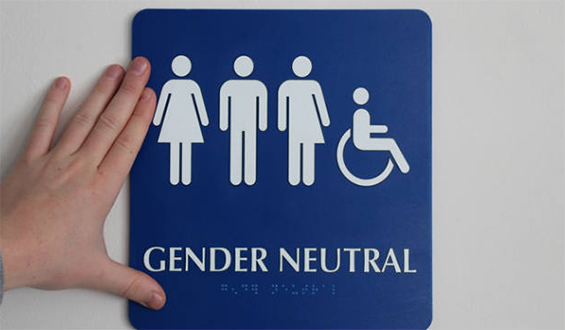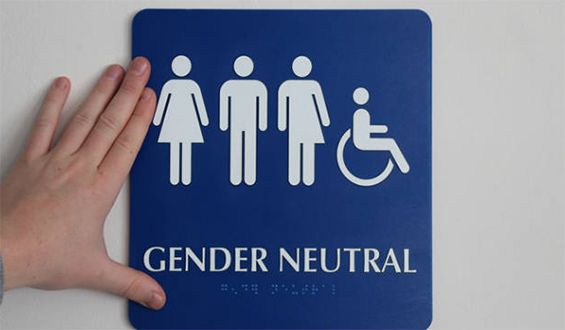
Gov. Dennis Daugaard of South Dakota vetoed a bill this week that would have made public school transgender students use bathrooms and locker rooms that correlated with their birth sex.
The Republican governor, when announcing the veto of HB 1008, said the bill:
“… does not address any pressing issue concerning the school districts of South Dakota. As policymakers in South Dakota, we often recite that the best government is the government closest to the people. Local school districts can, and have, made necessary restroom and locker room accommodations that serve the best interests of all students, regardless of biological sex or gender identity,”
He continued by saying the bill would have imposed standards across the state for every bathroom, locker room, or shower room in public elementary or secondary school. The measure, he added, takes away the districts’ opportunity to make the most appropriate decisions for their students, write Greg Botelho and Wayne Drash reporting for CNN.
Transgender rights advocates approved the governor’s determination. Kris Hayashi, executive director of the Transgender Law Center, said the proposed legislation was dangerous and would have made South Dakota the first state to mandate discrimination against transgender young people. The state now will not be violating federal law nor the privacy and emotional well-being of those in the transgender community.
Had the governor not vetoed the measure, it would have become law. State Rep. Fred Deutsch, the author of the bill, stated that he would ask his fellow lawmakers to agree with the governor’s decision.
Gay and Lesbian Alliance Against Defamation (GLAAD) president and CEO Sarah Kate Ellis said the governor had shown the world that South Dakota values do not include discrimination.
Conservative legal groups like the Alliance Defending Freedom and Liberty Counsel had offered Daugaard pro bono services to defend the law, but the governor declined their assistance while saying that such action would not protect schools from other expenses or reparations.
Think Progress’ Zack Ford reports that Daugaard shared during the week the bill passed that he had not ever, as far as he knew, met a transgender person. Since then, he has met with transgender students who spoke to him about the bullying they had endured, the shunning they had experienced, and their humiliation from policies that have discriminated against them.
The bill, promoted by conservative legislators, was aimed at protecting the privacy of all public school students, says Mitch Smith of The New York Times. The bill was also supported by the Heritage Foundation and the Roman Catholic bishops of South Dakota.
“Now the state also realizes that I’m a human being, too,” said Thomas Lewis, a high school senior in Sioux Falls who is transgender and spoke against the bill. “Now there’s less fear for trans people to come out because no one’s going to prevent them from using the bathroom” they prefer.
In several states, there have been protests and contention concerning bathroom and locker room issues surrounding transgender students and adults. A city ordinance in Houston that extended protections to transgender men and women was repealed by voters when those opposed used the saying “No Men in Women’s Bathrooms.”
A measure to restrict transgender students’ involvement in high school sports passed the South Dakota House in February and is currently awaiting action by the Senate.
Those opposed to the bill included the American Civil Liberties Union, the Human Rights Campaign, Caitlyn Jenner, and Laverne Cox, according to Laura Wagner of NPR. Also hoping the bill would be vetoed were the 1,360 young people who identify as transgender in the state — a number that is an estimate by the Williams Institute, a UCLA-based think tank.




